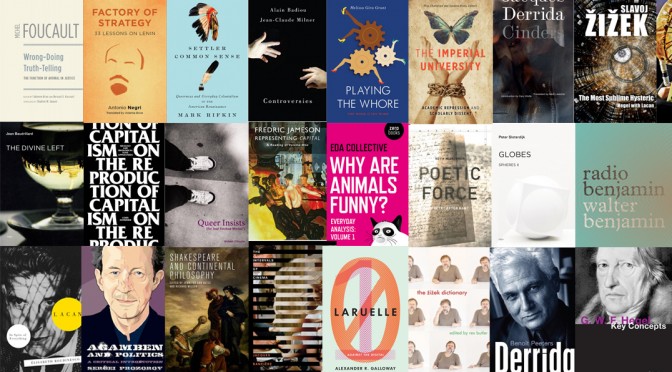And the late-comers…
#89 Starve and Immolate
By Banu Bargu
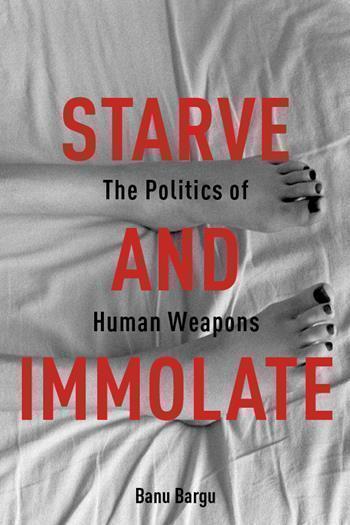
“Starve and Immolate tells the story of leftist political prisoners in Turkey who waged a deadly struggle against the introduction of high security prisons by forging their lives into weapons. Weaving together contemporary and critical political theory with political ethnography, Banu Bargu analyzes the death fast struggle as an exemplary though not exceptional instance of self-destructive practices that are a consequence of, retort to, and refusal of the increasingly biopolitical forms of sovereign power deployed around the globe.
Bargu chronicles the experiences, rituals, values, beliefs, ideological self-representations, and contentions of the protestors who fought cellular confinement against the background of the history of Turkish democracy and the treatment of dissent in a country where prisons have become sites of political confrontation. A critical response to Michel Foucault’s Discipline and Punish, Starve and Immolate centers on new forms of struggle that arise from the asymmetric antagonism between the state and its contestants in the contemporary prison. Bargu ultimately positions the weaponization of life as a bleak, violent, and ambivalent form of insurgent politics that seeks to wrench the power of life and death away from the modern state on corporeal grounds and in increasingly theologized forms. Drawing attention to the existential commitment, sacrificial morality, and militant martyrdom that transforms these struggles into a complex amalgam of resistance, Bargu explores the global ramifications of human weapons’ practices of resistance, their possibilities and limitations.”
Buy it here.
#90 Seventeen Contradictions and the End of Capitalism
By David Harvey
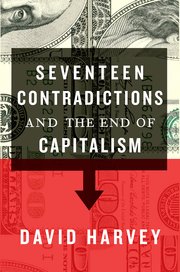
“In Seventeen Contradictions and the End of Capitalism, the eminent scholar David Harvey, author of A Brief History of Neoliberalism, examines the internal contradictions within the flow of capital that have precipitated recent crises. He contends that while the contradictions have made capitalism flexible and resilient, they also contain the seeds of systemic catastrophe. Many of the contradictions are manageable, but some are fatal: the stress on endless compound growth, the necessity to exploit nature to its limits, and tendency toward universal alienation. Capitalism has always managed to extend the outer limits through “spatial fixes,” expanding the geography of the system to cover nations and people formerly outside of its range. Whether it can continue to expand is an open question, but Harvey thinks it unlikely in the medium term future: the limits cannot extend much further, and the recent financial crisis is a harbinger of this.”
Buy it here.
#91 Punishment and Inclusion
By Andrew Dilts
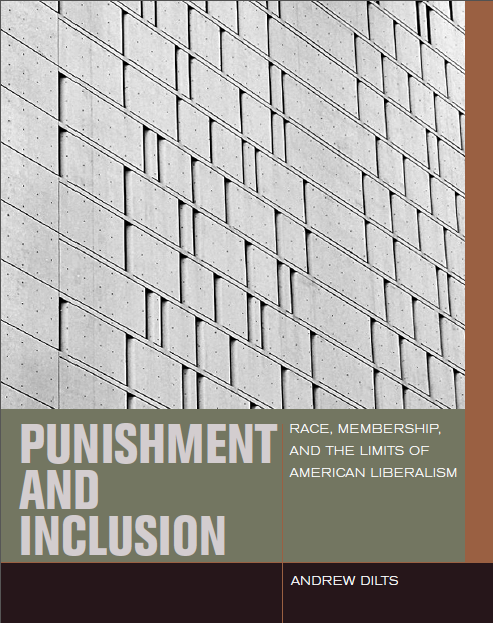
“At the start of the twenty-first century, 1 percent of the U.S. population is behind bars. An additional 3 percent is on parole or probation. In all but two states, incarcerated felons cannot vote, and in three states felon disenfranchisement is for life. More than 5 million adult Americans cannot vote because of a felony-class criminal conviction, meaning that more than 2 percent of otherwise eligible voters are stripped of their political rights. Nationally, fully a third of the disenfranchised are African American, effectively disenfranchising 8 percent of all African Americans in the United States. In Alabama, Kentucky, and Florida, one in every five adult African Americans cannot vote.
Punishment and Inclusion gives a theoretical and historical account of this pernicious practice of felon disenfranchisement, drawing widely on early modern political philosophy, continental and postcolonial political thought, critical race theory, feminist philosophy, disability theory, critical legal studies, and archival research into state constitutional conventions. It demonstrates that the history of felon disenfranchisement, rooted in postslavery restrictions on suffrage and the contemporaneous emergence of the modern “American” penal system, reveals the deep connections between two political institutions often thought to be separate, showing the work of membership done by the criminal punishment system and the work of punishment done by the electoral franchise.”
Buy it here.
#92 What Animals Teach Us About Politics
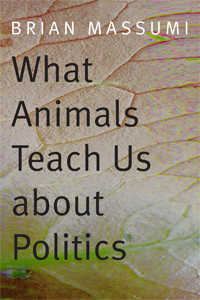
“In What Animals Teach Us about Politics, Brian Massumi takes up the question of “the animal.” By treating the human as animal, he develops a concept of an animal politics. His is not a human politics of the animal, but an integrally animal politics, freed from connotations of the “primitive” state of nature and the accompanying presuppositions about instinct permeating modern thought. Massumi integrates notions marginalized by the dominant currents in evolutionary biology, animal behavior, and philosophy—notions such as play, sympathy, and creativity—into the concept of nature. As he does so, his inquiry necessarily expands, encompassing not only animal behavior but also animal thought and its distance from, or proximity to, those capacities over which human animals claim a monopoly: language and reflexive consciousness. For Massumi, humans and animals exist on a continuum. Understanding that continuum, while accounting for difference, requires a new logic of “mutual inclusion.” Massumi finds the conceptual resources for this logic in the work of thinkers including Gregory Bateson, Henri Bergson, Gilbert Simondon, and Raymond Ruyer. This concise book intervenes in Deleuze studies, posthumanism, and animal studies, as well as areas of study as wide-ranging as affect theory, aesthetics, embodied cognition, political theory, process philosophy, the theory of play, and the thought of Alfred North Whitehead.”
Buy it here.
#93 Willful Subjects
Sarah Ahmed
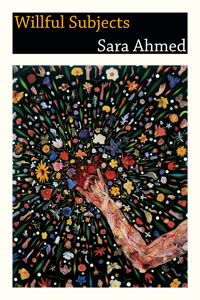 “In Willful Subjects Sara Ahmed explores willfulness as a charge often made by some against others. One history of will is a history of attempts to eliminate willfulness from the will. Delving into philosophical and literary texts, Ahmed examines the relation between will and willfulness, ill will and good will, and the particular will and general will. Her reflections shed light on how will is embedded in a political and cultural landscape, how it is embodied, and how will and willfulness are socially mediated. Attentive to the wayward, the wandering, and the deviant, Ahmed considers how willfulness is taken up by those who have received its charge. Grounded in feminist, queer, and antiracist politics, her sui generis analysis of the willful subject, the figure who wills wrongly or wills too much, suggests that willfulness might be required to recover from the attempt at its elimination.”
“In Willful Subjects Sara Ahmed explores willfulness as a charge often made by some against others. One history of will is a history of attempts to eliminate willfulness from the will. Delving into philosophical and literary texts, Ahmed examines the relation between will and willfulness, ill will and good will, and the particular will and general will. Her reflections shed light on how will is embedded in a political and cultural landscape, how it is embodied, and how will and willfulness are socially mediated. Attentive to the wayward, the wandering, and the deviant, Ahmed considers how willfulness is taken up by those who have received its charge. Grounded in feminist, queer, and antiracist politics, her sui generis analysis of the willful subject, the figure who wills wrongly or wills too much, suggests that willfulness might be required to recover from the attempt at its elimination.”
Buy it here.
#94 9/11 and the Visual Culture of Disaster
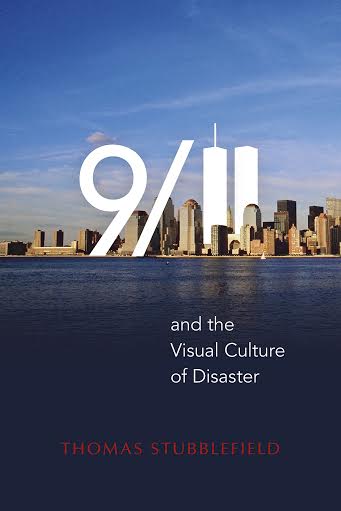
“The day the towers fell, indelible images of plummeting rubble, fire, and falling bodies were imprinted in the memories of people around the world. Images that were caught in the media loop after the disaster and coverage of the attack, its aftermath, and the wars that followed reflected a pervasive tendency to treat these tragic events as spectacle. Though the collapse of the World Trade Center was “the most photographed disaster in history,” it failed to yield a single noteworthy image of carnage. Thomas Stubblefield argues that the absence within these spectacular images is the paradox of 9/11 visual culture, which foregrounds the visual experience as it obscures the event in absence, erasure, and invisibility. From the spectral presence of the Tribute in Light to Art Spiegelman’s nearly blank New Yorker cover, and from the elimination of the Twin Towers from television shows and films to the monumental cavities of Michael Arad’s 9/11 memorial, the void became the visual shorthand for the incident. By examining configurations of invisibility and erasure across the media of photography, film, monuments, graphic novels, and digital representation, Stubblefield interprets the post-9/11 presence of absence as the reaffirmation of national identity that implicitly laid the groundwork for the impending invasions of Iraq and Afghanistan.”
Buy it here.
#95 The Way Things Go
By Aaron Jaffe
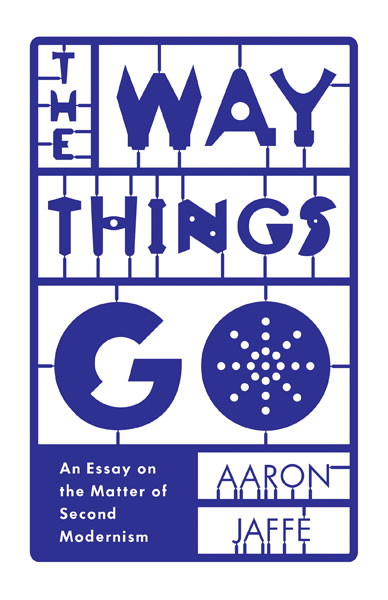 “The Way Things Go argues that modernist critical theory and aesthetic method are bound up with the inhuman fate of things as novelty becoming waste. Offering a thesis demonstrated via a century-long countdown of stuff, Aaron Jaffe demonstrates that literary criticism is the one mode of analysis that can unpack the many things that, at first glance, seem so nonliterary.”
“The Way Things Go argues that modernist critical theory and aesthetic method are bound up with the inhuman fate of things as novelty becoming waste. Offering a thesis demonstrated via a century-long countdown of stuff, Aaron Jaffe demonstrates that literary criticism is the one mode of analysis that can unpack the many things that, at first glance, seem so nonliterary.”
Buy it here.
#96 Cannibal Metaphysics
By Eduardo Viveiros de Castro
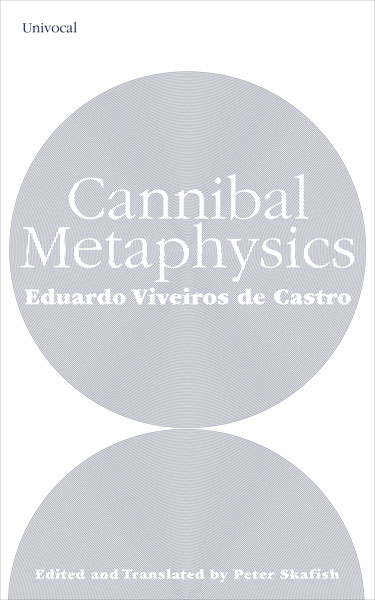
“The iconoclastic Brazilian anthropologist and theoretician Eduardo Viveiros de Castro, well known in his discipline for helping initiate its “ontological turn,” offers a vision of anthropology as “the practice of the permanent decolonization of thought.” After showing that Amazonian and other Amerindian groups inhabit a radically different conceptual universe than ours—in which nature and culture, human and nonhuman, subject and object are conceived in terms that reverse our own—he presents the case for anthropology as the study of such “other” metaphysical schemes and as the corresponding critique of the concepts imposed on them by the human sciences. Along the way, he spells out the consequences of this anthropology for thinking in general via a major reassessment of the work of Claude Lévi-Strauss, arguments for the continued relevance of Deleuze and Guattari, dialogues with the work of Philippe Descola, Bruno Latour, and Marilyn Strathern, and inventive treatments of problems of ontology, translation, and transformation. Bold, unexpected, and profound, Cannibal Metaphysics is one of the chief works marking anthropology’s current return to the theoretical center stage. ”
Buy it here.
#97 Sovereign Masculinity
By Bonnie Mann
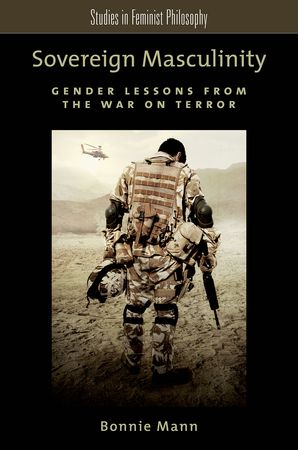
“After 9/11/2001, gendered narratives of humiliation and revenge proliferated in the U.S. national imaginary. How is it that gender, which we commonly take to be a structure at the heart of individual identity, is also at stake in the life of the nation? What do we learn about gender when we pay attention to how it moves and circulates between the lived experience of the subject and the aspirations of the nation in war? What is the relation between national sovereignty and sovereign masculinity?
Through examining practices of torture, extra-judicial assassination, and first person accounts of soldiers on the ground, Bonnie Mann develops a new theory of gender. It is neither a natural essence nor merely a social construct. Gender is first and foremost an operation of justification which binds the lived existence of the individual subject to the aspirations of the regime.”
Buy it here.
#98 Mohawk Interruptus
By Audra Simpson
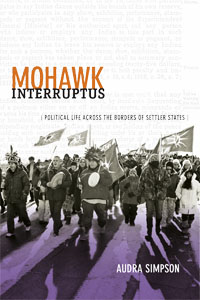
“Mohawk Interruptus is a bold challenge to dominant thinking in the fields of Native studies and anthropology. Combining political theory with ethnographic research among the Mohawks of Kahnawà:ke, a reserve community in what is now southwestern Quebec, Audra Simpson examines their struggles to articulate and maintain political sovereignty through centuries of settler colonialism. The Kahnawà:ke Mohawks are part of the Haudenosaunee or Iroquois Confederacy. Like many Iroquois peoples, they insist on the integrity of Haudenosaunee governance and refuse American or Canadian citizenship. Audra Simpson thinks through this politics of refusal, which stands in stark contrast to the politics of cultural recognition. Tracing the implications of refusal, Simpson argues that one sovereign political order can exist nested within a sovereign state, albeit with enormous tension around issues of jurisdiction and legitimacy. Finally, Simpson critiques anthropologists and political scientists, whom, she argues, have too readily accepted the assumption that the colonial project is complete. Belying that notion, Mohawk Interruptus calls for and demonstrates more robust and evenhanded forms of inquiry into indigenous politics in the teeth of settler governance.”
Buy it here.
#99 James Baldwin: The Last Interview
By James Baldwin and Quincy Trouple
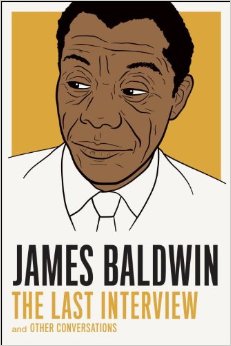
““I was not born to be what someone said I was. I was not born to be defined by someone else, but by myself, and myself only.” When, in the fall of 1987, the poet Quincy Troupe traveled to the south of France to interview James Baldwin, Baldwin’s brother David told him to ask Baldwin about everything—Baldwin was critically ill and David knew that this might be the writer’s last chance to speak at length about his life and work.
The result is one of the most eloquent and revelatory interviews of Baldwin’s career, a conversation that ranges widely over such topics as his childhood in Harlem, his close friendship with Miles Davis, his relationship with writers like Toni Morrison and Richard Wright, his years in France, and his ever-incisive thoughts on the history of race relations and the African-American experience.
Also collected here are significant interviews from other moments in Baldwin’s life, including an in-depth interview conducted by Studs Terkel shortly after the publication of Nobody Knows My Name. These interviews showcase, above all, Baldwin’s fearlessness and integrity as a writer, thinker, and individual, as well as the profound struggles he faced along the way.”
Buy it here.
#100 Necropolitics, Racialization, and Global Capitalism
By Marina Grzinic and Sefik Tatlic
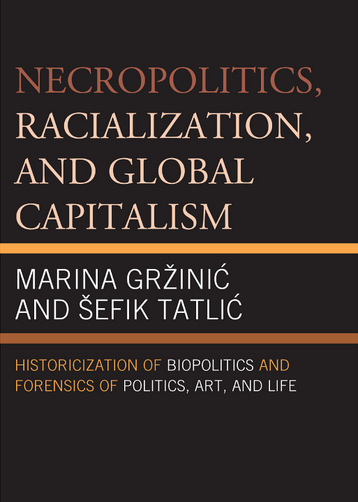
“This book articulates a contemporary, globalized world as one in which radical disparities in distribution of wealth are being reproduced as the basis for depoliticized social, institutional, and ideological discourses. At its center is a reorientation of global capitalism from the management of life towards making a surplus value from death. This change is presented as a reorientation of biopolitics (bio meaning life) to necropolitics (necro meaning death). Therefore in the book we work with processes of change, of a historicization of biopolitics and its turn into necropolitics that leads to a theoretical trajectory from M. Foucault to A. Mbembe and beyond.
This book interprets the sustained perception of existence of dichotomy between these provisional extremes as a trademark of apolitical and/or post-political logics on which contemporary institutional, political, and social discourses tend to be structured upon. More, contrary to the majority of approaches that insists on a profound dichotomy between democracy and totalitarianism, between poverty and free market, and between democracy and capitalism, this book does not interpret these relations as dichotomous, but as mutually fulfilling.
The book elaborates, in the context of articulation of these logics, contemporary, imperial racism (racialization) as an ideology of capitalism and states that the First World’s monopoly on definition of modernity has its basis in contemporary reorganization of colonialism.”
Buy it here.
#101 The Meillassoux Dictionary
Edited by Peter Gratton and Paul Ennis
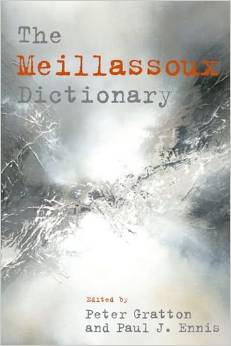
“The first dictionary dedicated to Quentin Meillassoux and the controversies surrounding his thought
Perfect for philosophers just starting to read his work and for those looking to deepen their engagement, this dictionary defines all of the major terms of Meillassoux’s work, prefaced by an introduction explaining his importance for the Continental philosophy scene.
A-Z entries explain the influence of key figures, from Kant to Heidegger to Derrida, and define the complex terms that Meillassoux uses. The entries are written by the top scholars in the field of speculative realism, often by those that highlight their own disagreements with him. This is more than a dictionary; this is your invitation into one of the liveliest debates in current philosophy.”
Buy it here.

